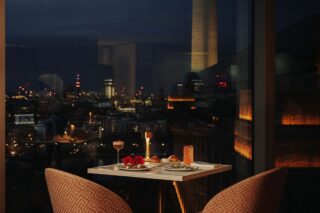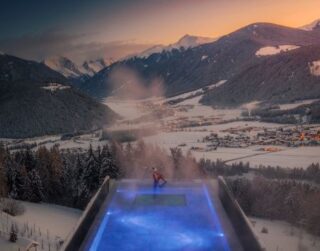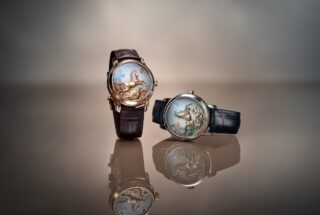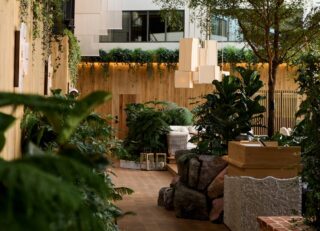This website uses cookies so that we can provide you with the best user experience possible. Cookie information is stored in your browser and performs functions such as recognising you when you return to our website and helping our team to understand which sections of the website you find most interesting and useful.
How Difference Coffee Co is introducing a new blend of luxury in London
By Michelle Johnson | 4 January 2019 | Food & Drink
Founder Amir Gehl shares his passion for the world’s finest roasts and rarest blends
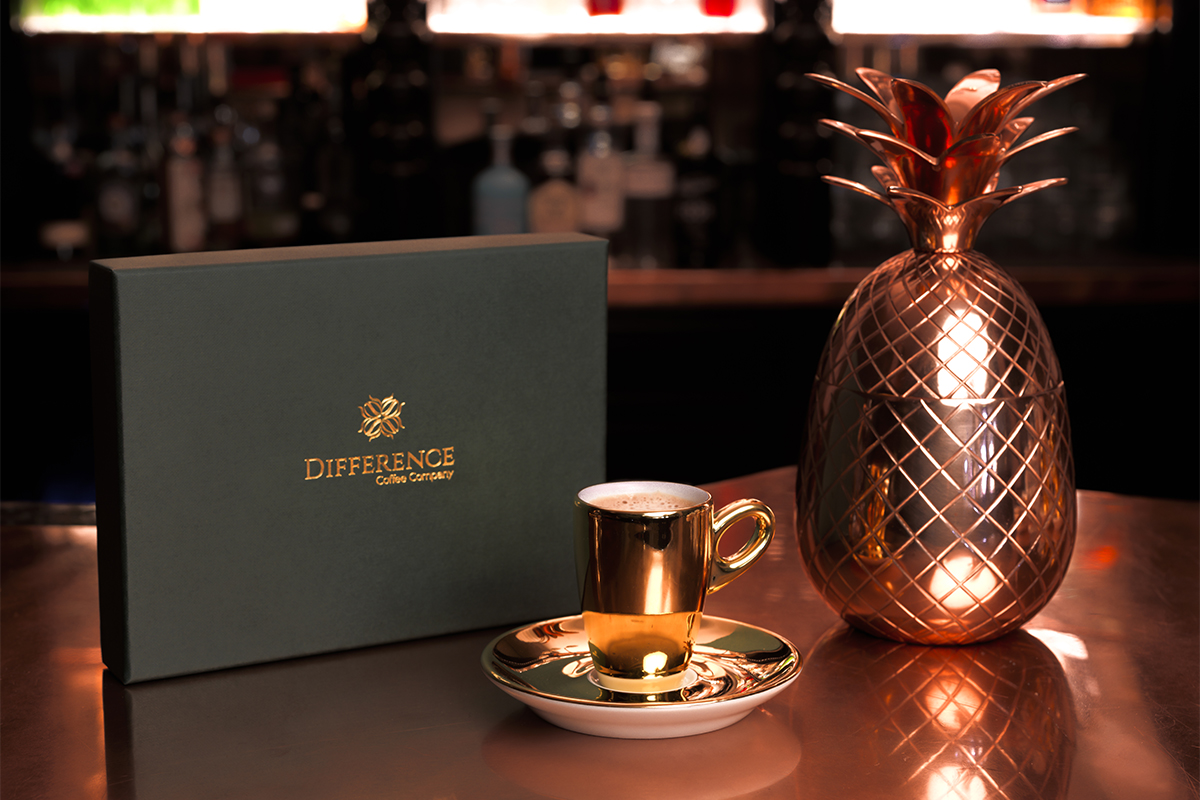
For all the significance coffee plays in our lives, whether it's your morning pick-me-up or an after dinner digestif , it's rare that we really take the time to consider the full scope of a great blend. These days, we're well-versed in Fairtrade and sustainably sourced coffee but, according to Difference Coffee Company founder Amir Gehl a great coffee is worth enjoying much like a fine wine.
Difference Coffee takes award-winning coffee blends from the world's most outstanding estates, and is served in some of the country's most exclusive private members' clubs, restaurants and hotels – including 10 Trinity Square, Annabel's and 67. His master roaster, Johnny England, is one of only four qualified Q Graders in Europe, helping Gehl to select the top 1% of coffees in the world through flavour, aroma, aftertaste, and deliver them to the most discerning coffee-lover.
"People go to a club, restaurant or hotel to get pampered, to indulge in luxury, and this is really what Difference Coffee provides within the coffee market," says Gehl. "The word luxury comes from the Latin 'lupus' – and it means indulgence of the senses, regardless of cost. I couldn't define my brand any better." Here, Gehl tells Tempus how he came to make a business of his passion for taste.
How does Difference Coffee differ from other luxury coffee brands on the market?
Ultimately, it's all down to quality. Difference Coffee Co was set up to make available to customers the highest graded, highest quality, and therefore the most delicious coffees in the world. Coffee is similar to wine in the sense that it is graded using a 100-point system developed by the Specialty Coffee Association. Only 1% of the world's supply of coffee is of Specialty grade, meaning it scored 80 points or more. We buy the highest graded coffees at auctions of coffee competitions. These includes the annual Kona Coffee Cupping competition, Best of Panama, and the Cup of Excellence Competitions.
What varieties of coffee have you chosen?
All our coffees are 100% Arabica of single varietals sourced from single estates, we don't actually blend anything. It's a bit like top Burgandy wine – you wouldn't go and blend a Pino from Burgundy with any other grape would you? I always like to stress that these are the best coffees in the world not because they're ours, but rather the other way round – they were purchased by us because they're the best in the world. >>
Related: Discover the relaxed fine-dining restaurant showcasing Florence's gastronomic arts
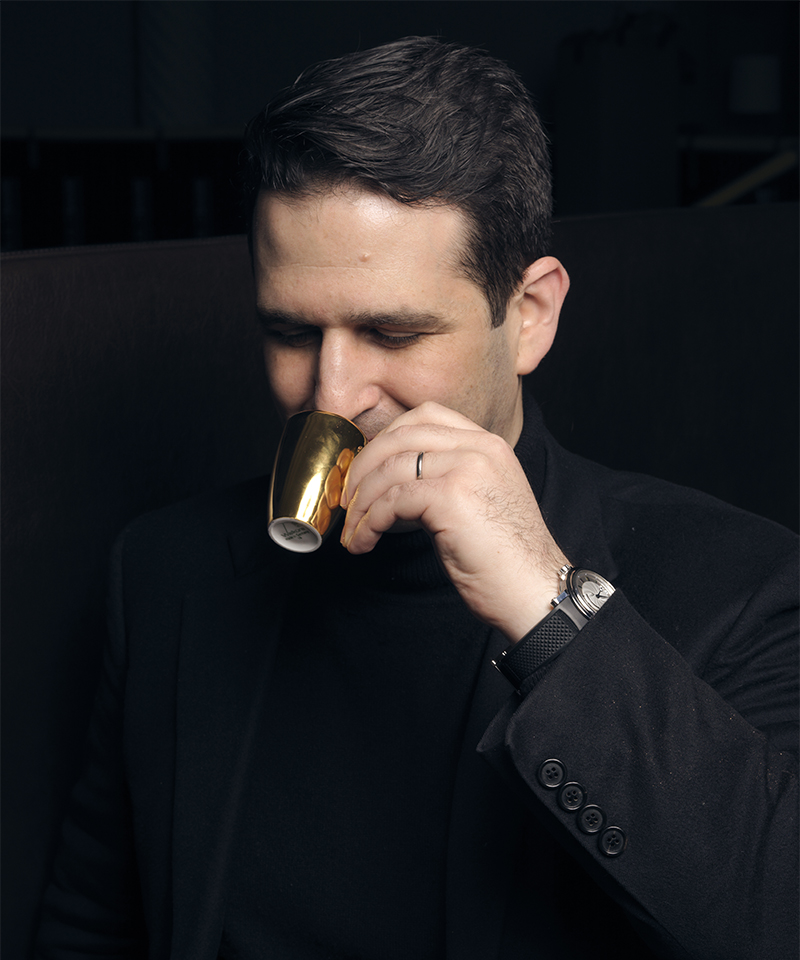
What inspired you to create the company?
Personal self-indulgence. I love food, wine and cigars, and when I started drinking coffee I wondered, where's the tastiest coffee? I remember going to Harrods and seeing their fine selection of terroir-led beans – some from Jamaica, some from Hawaii, Indonesia, and so on, which is very similar to wine, and I just wanted to try the tastiest coffees from each of these regions.
You come from a long line of tobacco manufacturers – are there any similarities in the coffee industry?
That's a whole article in itself! Be it tobacco or coffee, it's ultimately all down to the farming and the processing. You need superior soil and weather conditions first, the leaves or cherries must then be picked by farmers at optimal times, then processing, which involves fermentation and drying. Both really share the same steps. We have saying, 'if it didn't happen in the field, it won't happen in your cup'.
You specialise in identifying the world's very best coffee. What do you look for?
Essentially we look for the single estate in each country that has managed to grow and process coffee beans better than all the rest. The coffee must be free of defects, and must have superior aromatics, flavours and aftertaste. We are extremely lucky that the coffee industry is so well-developed that most of the work for identifying the coffees has already been done for us at national competitions. All we do is really pay more than the rest. In this sense, not only do we have the best coffees in the world, technically we are one of the highest paying coffee companies to farmers in third world countries. >>
Related: Discover a sweet escape in Lisbon's gastronomic hub
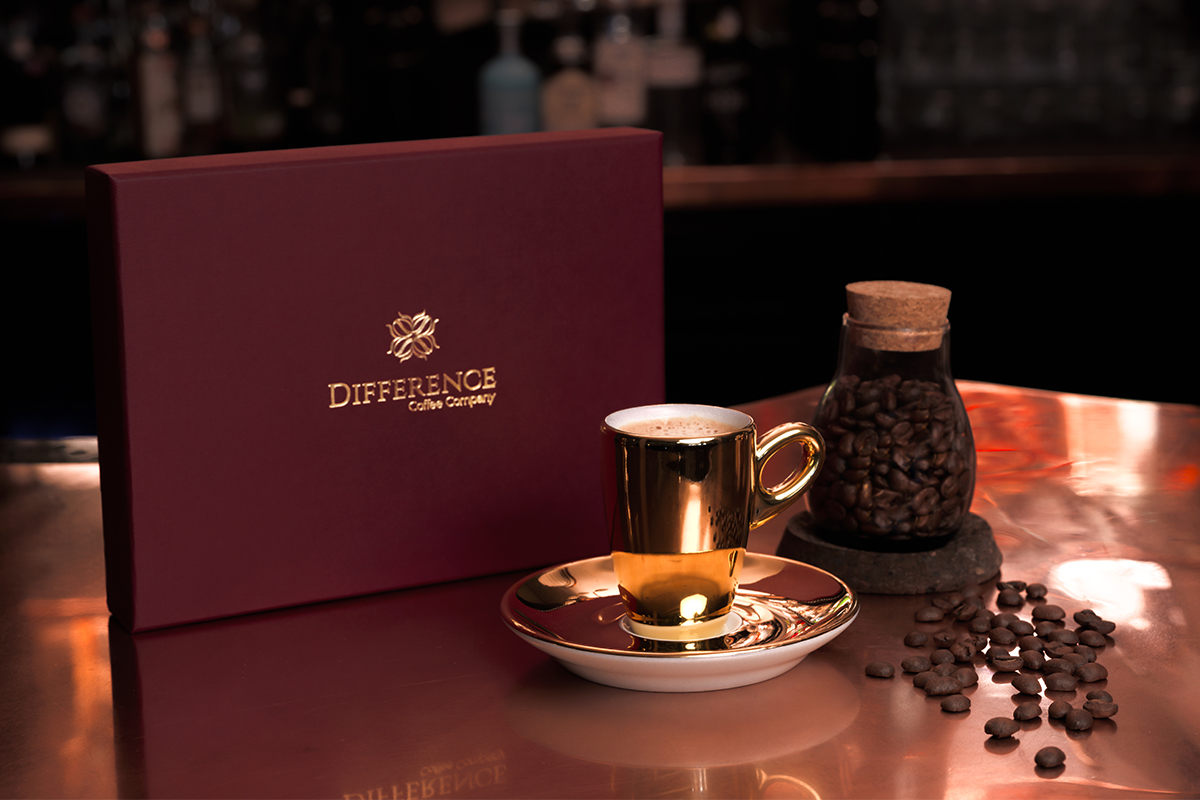
What are the stages of coffee – from bean to cup – that impact its taste?
Every single step can have a dramatic effect on the taste of the coffee. At planting, the choice of land, terroir, the choice of coffee varietal can have a huge impact on taste. Many people have heard of Arabica and Robusta beans, but not a lot of people are aware than within Arabica, which represents nearly 75% of the total production of coffee in the world, there are many different coffee varietals. These can include Jamaica Blue Mountain, Kona, Bourbon, Pacamara, Geisha, etc. Then, where you plant the seed makes a huge difference. For example, the Geisha bean seems to grow really well in Panama, so probably the best Geisha in the world comes from an estate called Hacienda La Esmeralda in Panama.
Then, you have the actual processing of the coffee bean. Not a lot of people realise this, but coffee is actually the bean of a coffee cherry, so whether you dry the bean with the fruit on top or whether you wash away the fruit and allow it to dry in its parchment will affect the taste in a big way. Next you have transportation, then the actual roasting – and this is really where we take a lot of pride. Many people claim that they are the best roasters but Johnny England, our head of roasting, is an acting head judge for the World Barista Championship and the World Brewer's Cup, so his ability to create a flavour profile for us and then to consistently achieve that profile is incredible. Finally, you have the actual brewing stage, which consist of choices of brewing methods (capsules, filter, espresso, etc), grinders, machines, and ways in which the coffee is packed to preserve freshness.
How do you take your coffee?
Neat. I used to add sugar when I started drinking coffee, and occasionally would add a bit of cream. I'm actually not against either of these practices. Some people do enjoy a more sweetened drink, and cream can be a great pairing with coffee. Ultimately, if you make a cappuccino using a burnt tasteless coffee, your cappuccino will taste rather poor. A beautiful Jamaica Blue Mountain, on the other hand, will result in a really indulgent drink.




